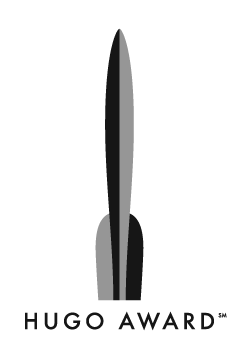So it’s time for my semi-annual attempt to read the bulk of the Hugo Award Fiction Nominees and vote for my favourite candidates.
What are the Hugos?
The Hugo Awards are probably the best known Science Fiction and Fantasy awards for books 1.
Hang on, didn’t you say that you had a vote?
Surprisingly the Hugo’s are not awarded by a distinguished jury or a guild organisation but by the attendees 2 of Worldcon. Worldcon itself is unusual, in that it is a SFF con that has no fixed location that roams the globe from year to year.
The upside of this is that the Hugo voting pool represent a diverse international fanbase, with a bias towards whatever region it finds itself in each year (Hello Finland!). Unfortunately, the last few years have shown that a group of really determined fans can play politics, crafting a slate of nominees and then try to get them nominated as much for their tribalism as their quality.3
But you’re not going to finland?
Yes, but the practical upshot of the Hugo process is that anyone can pony up $40 and vote for the nominee slate. More importantly, it’s become practice for the bulk of the nominee’s publishers to supply review copies in the form of a Hugo Voters Packet. Given the breadth of fiction on offer, it’s some of the best value in SFF.
Of course, for me, once I’ve gotten all of these items, I feel obligated to do my best to read them and vote, despite the relatively short window between packet release and voting deadline, and the staggering breadth of content. This results in a scramble to read through the categories in a little under two months.4
So what are the categories?
This year there are six nominees per category to try to avoid ballot stuffing shenanigans. I try to focus on the written fiction categories which break up into:
- Short Story (<7,500 words, usually 5-15 pages).
- Best Novellete (7,500-17,500 words, usually around 30 pages)
- Best Novella (17,500-40,000 words, usually around 100 pages)
- Best Novel (anything larger).
Outside the standard fiction categories I also vote in:
- Best Graphic Story (basically best comic or graphic novel)
- John W Campbell award for best new writer (best new author, looking at their work, can be nominated twice (ie two year eligibility)). 5
Finally, individual Worldcon’s can create a single special category, and this year, because I don’t have enough to read, that category is best series. This is basically a troll, because a couple of years back the Wheel of Time (all 15 novels) was nominated in the novel category on a technicality.[Note] It was finished in that year, it was longer than 40,000 words, and no individual part had previously been nominated[/note]
That’s a lot of reading, but you are a big SFF fan, you’ve read a lot of these right?
Um, sure. Ironically, the only category I have a leg up on is the best series category, where I have read books from two thirds of the series. Of course, a lot of the reason for doing this is that it forces me to read new things and discover new authors, so I’ll relegate “I have too many award nominated stories to read” into the first world problems category. Basically I work through the categories in the order I listed them above and do the best I can.
Anything Else?
The voting is a preferential voting system with the option of a no award which can prevent lower preferenced titles from winning. In previous years I’ve dallied over whether to not rank books that I think are OK but not award worthy, but this year I’m going to try to rank everything. I only vote no award when a title is egregiously bad.
- Though they are not just for books
- and supporting members.
- Anyone acquainted with the internet can probably guess exactly what sort of fans these are, if not, look up sad puppies and be depressed.
- I’ve been a bit tardy posting this, now about three weeks to voting deadline, but I’m through all the short fiction categories.
- Like the Bank of Sweden Prize, not technically a hugo.

One thought to “Hugo Awards Extravaganza 2017 – Introduction”